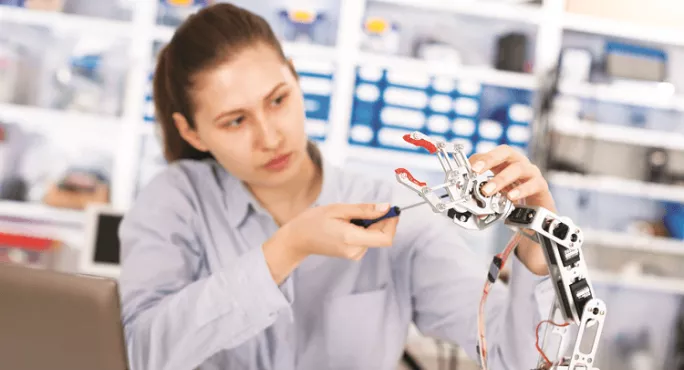Independent girls’ schools want to help produce more female scientists by offering up their physics teachers to help state schools struggling with staff shortages
Nearly a third of the members of the Girls’ Schools Association (GSA), which represents 148 leading UK private schools, have already signed up to a project to help provide high-quality physics teaching at A level.
It follows widespread concern about the significant lack of girls choosing to study physics at school and university, and then taking up careers in science, technology, engineering and maths (Stem).
Speaking to TES in her first interview as GSA president, Charlotte Avery said tackling the issue of social mobility was a top priority - and she believes that offering up enthusiastic, inspiring and high-quality physics specialists to state schools most in need could help.
“We want to support women into science, and we know we have got excellent teachers, so I think [GSA schools] are delighted to support their schools locally. We feel we can add some value,” she said.
So far, more than 40 independent girls’ schools have committed to work with state schools through the scheme, run by charity Physics Partners - since it was launched by GSA last month.
The new partnership follows warnings from the government that private schools need to do more to help children from a variety of backgrounds. In a Green Paper, ministers have proposed that large private schools should offer more fully funded bursaries, sponsor an academy or set up a new free school in the state sector - or face losing their tax breaks.
But Ms Avery said: “Partnerships between independent and state schools have been going on for years and years. We don’t need a hard or soft federation and we don’t need a multi-academy trust to be doing this. We have been doing this because it’s the right and proper thing to be doing.”
She added that, nationally, there is a “dearth” of physics teachers and specialists, particularly at A level.
She said that one solution to fix “the leaky pipeline” - the lack of physics teachers in general and the shortage of women scientists - is to “encourage girls with excellent teaching to do the subject at A level, inspired by teachers, and then to go on to university”.
As part of the initiative, which is expected to start in September, a physics specialist from a GSA school will lead CPD sessions with several local schools - with the support of the Institute of Physics.
Tommy Cookson, the chairman of Physics Partners, said: “State schools find it extremely difficult to recruit teachers to teach physics - especially with a degree. We want to help these schools.”
This is an edited article from the 24 February edition of TES. Subscribers can read the full article here. To subscribe, click here. To download the digital edition, Android users can click here and iOS users can click here. This week’s TES magazine is available in all good newsagents.
Want to keep up with the latest education news and opinion? Follow TES on Twitter and like TES on Facebook




